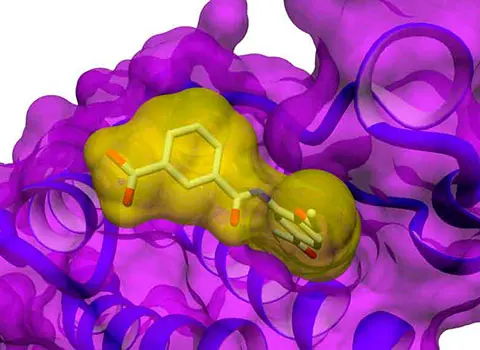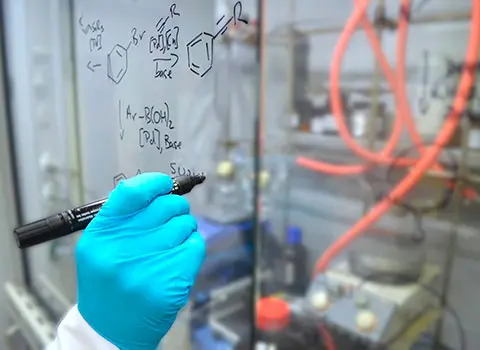Analytical Chemistry and Purification
Home » Chemical Services » Analytical Chemistry and Purification
Compound purification and quality control
- (u)HPLC, LC/MS
- NMR spectroscopy
- Reaction calorimetry
- Viscosimetry/rheology
- Polarimeter
- GC-MS
- FT-IR and IR spectroscopy
- Differential scanning calorimetry (DSC)
- Dynamic light scattering (DLS)
- Melting point determination
- Preparative HPLC
- UV/VIS spectroscopy
- Thermal gravimetric analysis (TGA)
- Gel permeation chromatography (GPC)
- Karl Fischer Titrator
Chemical composition analyses utilize a combination of techniques that can cover a wide range of applications and determine chemical quality, identity, composition and impurities, with molecular structure elucidation and chemical structure confirmation provided by our analytical expertise. Within analytical chemistry, Taros scientists use mass spectrometry techniques to determine molecular weight and various approaches to provide valuable data in the identification of an unknown molecule. During the process, they apply techniques such as 1H and 13C nuclear magnetic resonance (NMR) to explore and confirm the connectivity of the atoms in the molecule. They also apply a range of techniques including chromatography approaches to study and confirm optical isomers of chiral molecules.
Looking for analysis and purification of your intermediates and products?

Medicinal Chemistry

Custom Synthesis

